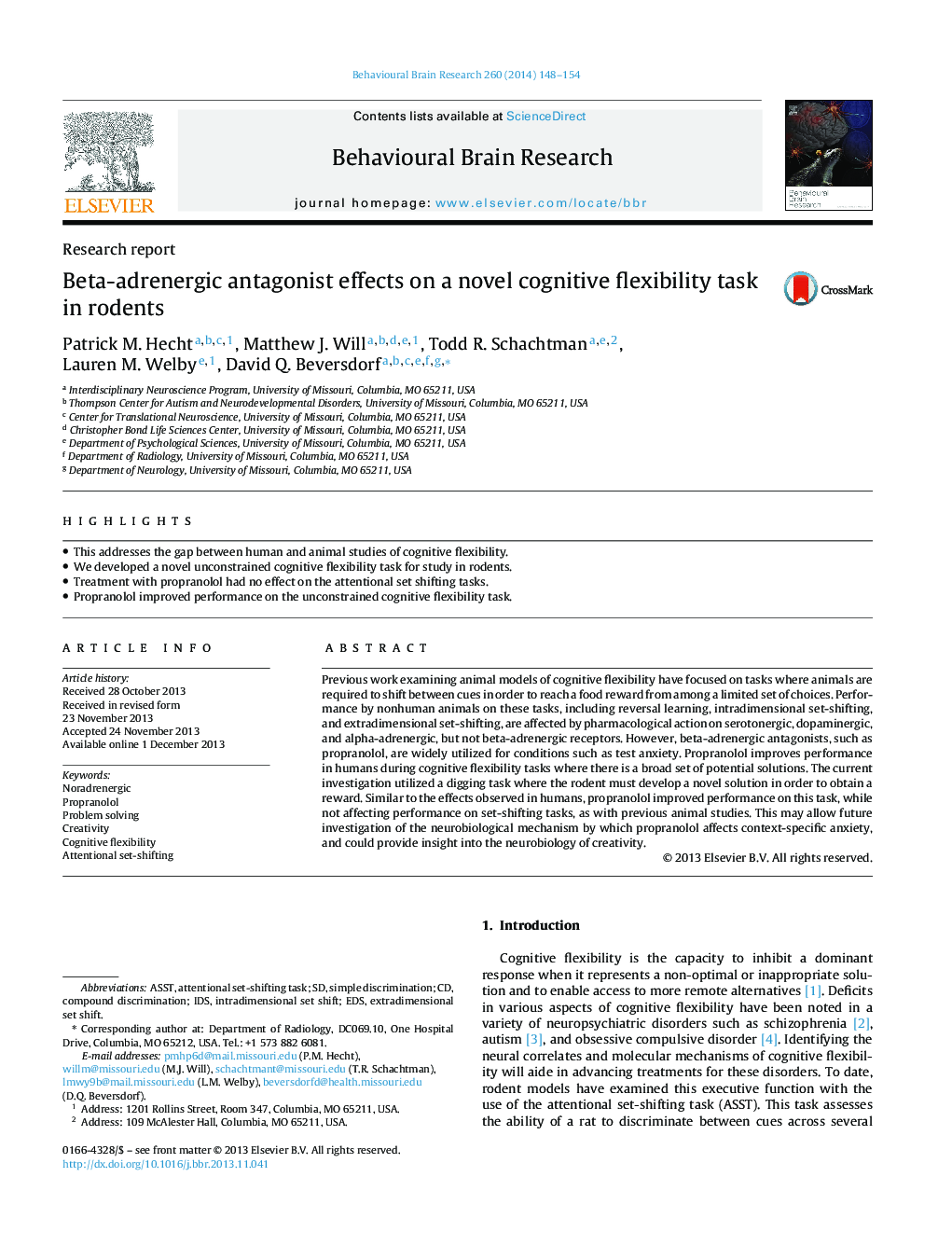| Article ID | Journal | Published Year | Pages | File Type |
|---|---|---|---|---|
| 4312581 | Behavioural Brain Research | 2014 | 7 Pages |
•This addresses the gap between human and animal studies of cognitive flexibility.•We developed a novel unconstrained cognitive flexibility task for study in rodents.•Treatment with propranolol had no effect on the attentional set shifting tasks.•Propranolol improved performance on the unconstrained cognitive flexibility task.
Previous work examining animal models of cognitive flexibility have focused on tasks where animals are required to shift between cues in order to reach a food reward from among a limited set of choices. Performance by nonhuman animals on these tasks, including reversal learning, intradimensional set-shifting, and extradimensional set-shifting, are affected by pharmacological action on serotonergic, dopaminergic, and alpha-adrenergic, but not beta-adrenergic receptors. However, beta-adrenergic antagonists, such as propranolol, are widely utilized for conditions such as test anxiety. Propranolol improves performance in humans during cognitive flexibility tasks where there is a broad set of potential solutions. The current investigation utilized a digging task where the rodent must develop a novel solution in order to obtain a reward. Similar to the effects observed in humans, propranolol improved performance on this task, while not affecting performance on set-shifting tasks, as with previous animal studies. This may allow future investigation of the neurobiological mechanism by which propranolol affects context-specific anxiety, and could provide insight into the neurobiology of creativity.
